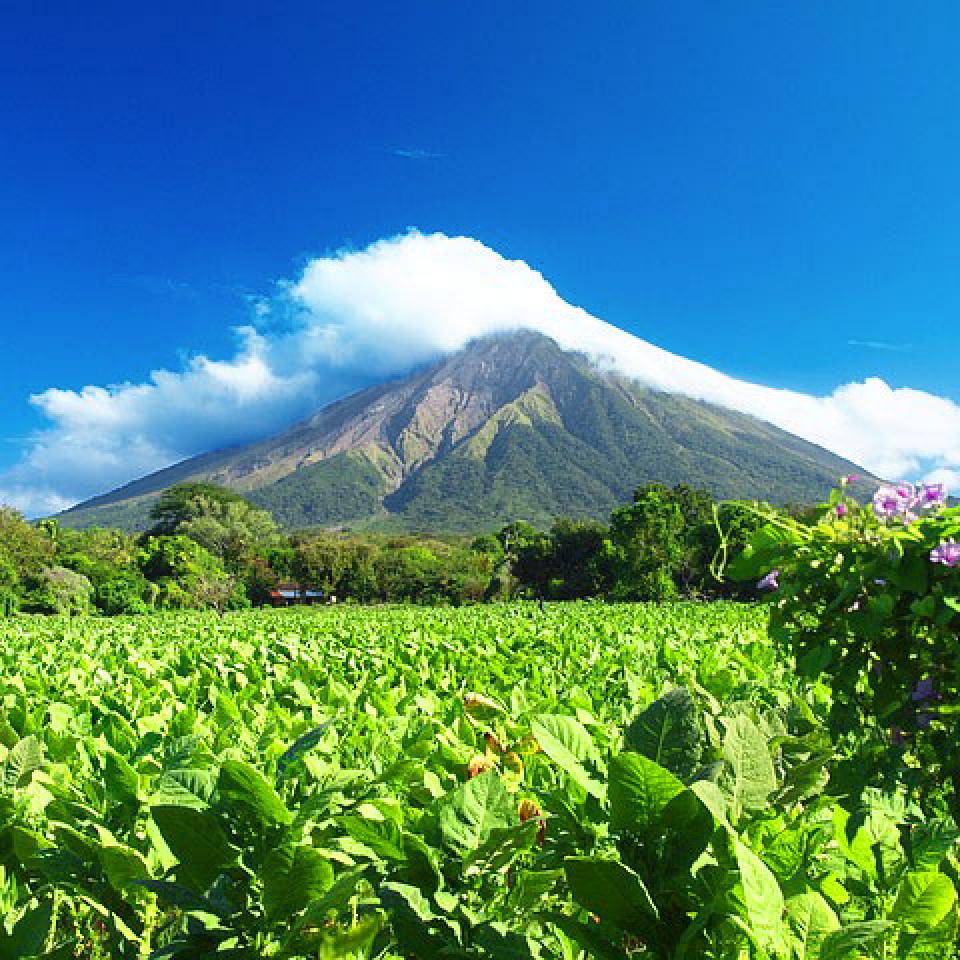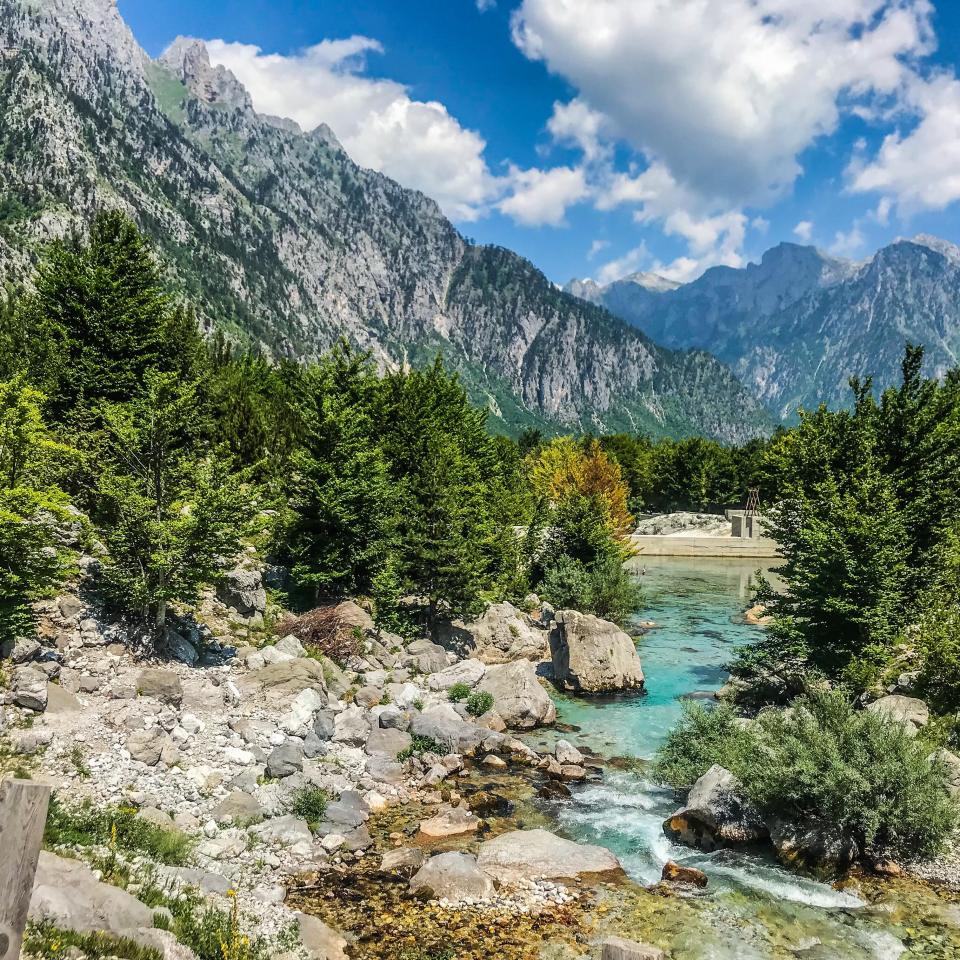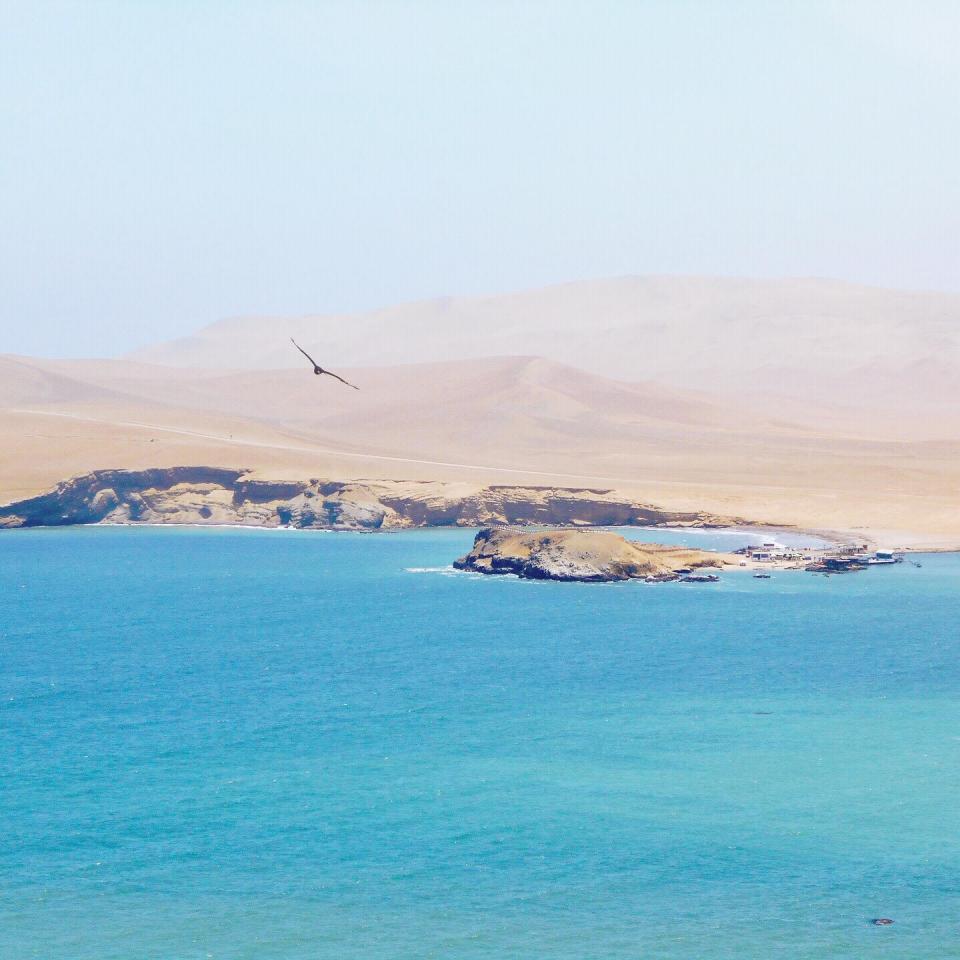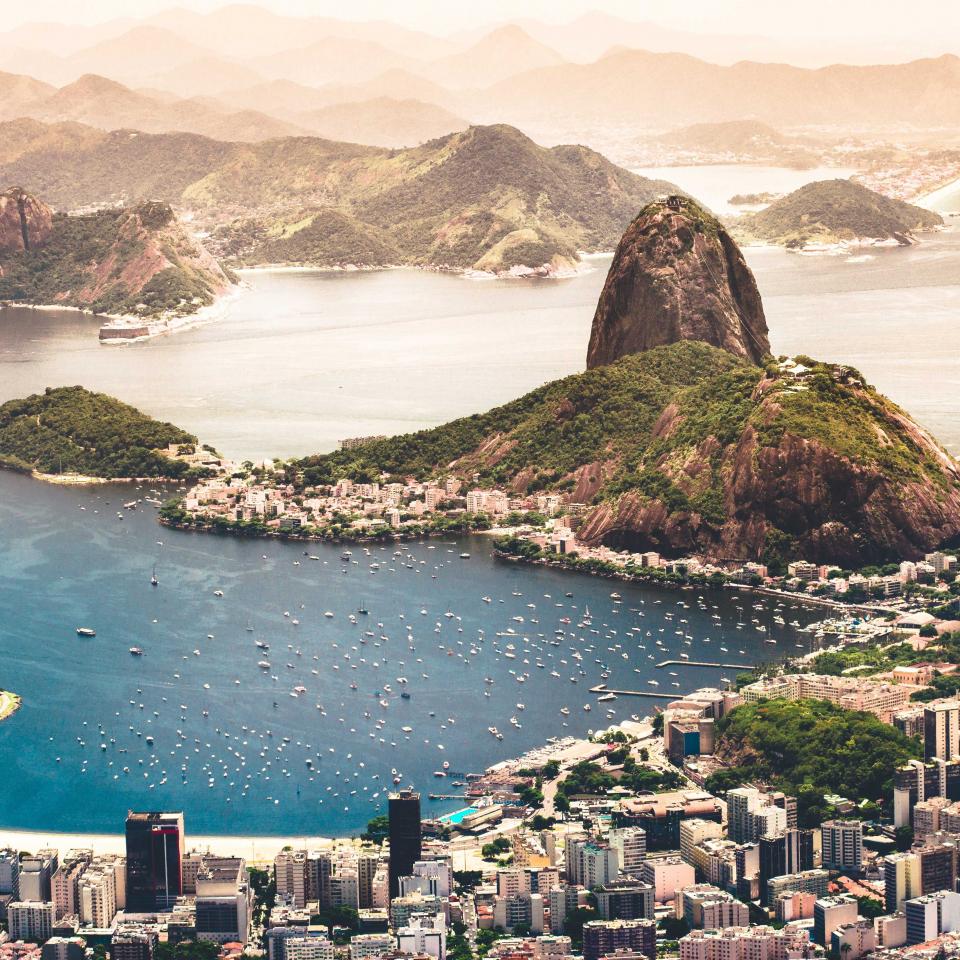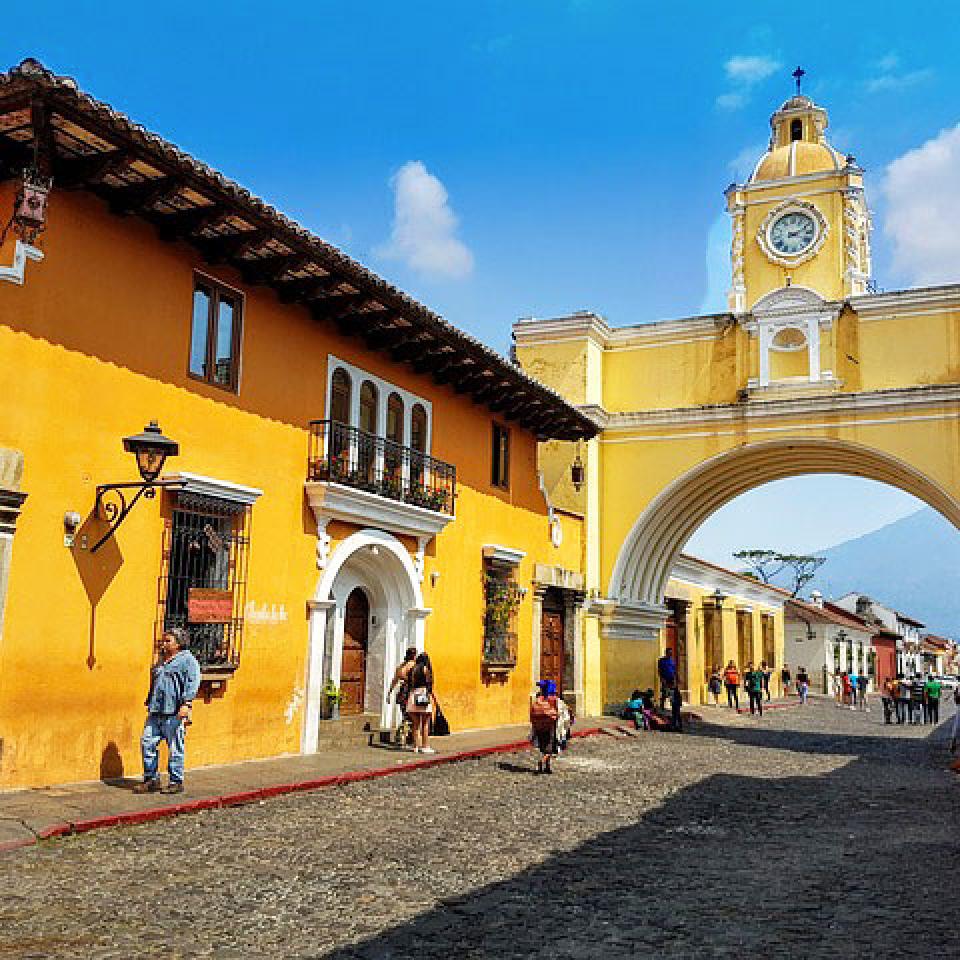The tourism industry is BOOMING. In recent years the tourism industry has shown an average annual growth of around 5%, and last year, figures showed that tourism contributed to over 10% of the world's economic activity, providing 1 in 10 of all jobs, worldwide!
As an industry, tourism generates important employment opportunities, it stimulates investment for conservation protection and infrastructure, it helps educate us of the diverse world we live and create the opportunity for cultural exchange and as a vessel for travel, it is hugely beneficial for our psychological well being.
BUT, with this rapid growth in tourism, not all impacts are positive. Contributions to global warming from our increased carbon footprint, increased plastic waste, deforestation to make way for tourist hotspots, pollution, endangering wildlife, destroying habitats and cultural appropriation are just a few negative effects of the tourism industry, and sadly there are TOO MANY MORE to mention.
So what can WE do TOGETHER to ensure we continue to enjoy the benefits of the tourism industry, whilst MINIMISING the negative impacts it brings with it. Drum roll please…. Sustainable Tourism.
This article will discuss sustainable tourism, its benefits, why it should be important to you and how you can be a more responsible traveller with our top tips. There are additional articles at the end that I found really helpful, along with similar terms people often confuse sustainable tourism with.
Sustainable tourism has become somewhat of a buzz word in recent years, but what does it actually mean? Essentially, sustainable tourism is an industry which seeks to make a low impact on the environment and community, whilst helping generate income, employment and the conservation of ecosystems. The World Tourism Organisation (UNWTO) defines sustainable tourism as;
"Sustainable tourism development meets the needs of present tourists and host regions while protecting and enhancing opportunity for the future. It is envisaged as leading to management of all resources in such a way that economic, social, and aesthetic needs can be fulfilled while maintaining cultural integrity, essential ecological processes, biological diversity, and life support system."
Sustainable tourism is built on a 3 key principles that refer to economic, socio-cultural and environmental impacts of tourism development. These 3 principles apply to ALL forms of tourism across ALL types of destinations:
- Economic sustainability: Create and maintain long term economic operations, providing fairly distributed socio-economic benefits to all people involved. This includes stable employment and income-earning opportunities for host communities (keeping the money local), and working towards poverty alleviation in the host country.
- Socio-cultural sustainability: To always respect the socio-cultural authenticity of host communities, protecting their cultural heritage and traditional values. To contribute to intercultural understanding. This can be achieved by getting the locals involved in the tourism industry which in turn can offer the visitors a more genuine experience.
- Environmental sustainability: Make optimal use of environmental resources whilst maintaining, preserving and protecting ecosystems, natural heritage and biodiversity.
Sustainable tourism seeks to provide a meaningful experience to tourists and maintain a high level of tourist satisfaction, whilst raising awareness about sustainability issues and promoting sustainability principles as outlined above.
The challenge of sustainable tourism development is to enhance the tourism industries positive impacts whilst mitigating the negative impacts as much as possible.
The importance of sustainable tourism really hit me when I visited Angkor Wat, a UNESCO world heritage site in Cambodia. As a bucket list goal of mine, I was beyond excited to see the temple at sunrise (despite the awful bout of food poisoning I had). But as I arrived, all I could see was a swarm of disrespectfully dressed tourists clambering over these beautiful religious monuments, and I am 99% sure that the cost of my ticket didn’t go back to helping the community.
Now I understand the principles behind sustainable tourism, this experience was the very opposite of that, which really saddens me and has been a valuable life lesson. I doubt if the socio-economic benefits are fairly distributed to all people involved, it certainly wasn’t respecting the socio-cultural authenticity of the host communities or protecting their cultural heritage and traditional values, and it definitely wasn’t acting to preserve and protect the ecosystem and biodiversity of Angkor Wat.
Sustainable tourism helps preserve and protect sites like Angkor Wat for future generations and without forcing local communities to compromise on their culture and home environment. We must start thinking LONG TERM and travel in a way that benefits future generations and the communities we are visiting.
We have a choice ~ we can either destroy our world through travel, or we can embrace sustainable tourism and potentially make the world a better place.
Sustainable tourism benefits everyone who is involved. Sustainable tourism benefits tourists by providing a genuine and authentic experience of the host destination with the opportunity to enjoy it in years to come, because it is being responsibility sustained. For the host community, sustainable tourism helps local businesses and ecosystems, making sure they do not have to compromise on their cultural or heritage values through touristic activities
In comparison to tourism where the benefit is only economical, sustainable tourism seeks to benefit via the three pillars it is built on - Economic, Socio-cultural and Environmental. Sustainable tourism benefits include:
Economic sustainability: Economically, sustainable tourism promotes a two way dialogue between the tourist and the host community. Sustainable tourism offers increased employment rates and through local projects, it ensures the money is kept in country. On the other side of the coin, the tourist receives a genuine and authentic insight into the host community ~ how they live, their values, their beliefs and their customs. If tourist satisfaction is high, positive feedback means more people will visit the host destination, contribute to the local economy which in turn can help poverty reduction.
~
Socio-cultural sustainability: Again Sustainable tourism opens up a two way dialogue, promoting cultural exchanges and knowledge between the tourist and host community. Activities carried out with local tour operators can enrich the tourist experience and knowledge which only services a sense of social inclusiveness and cross cultural understanding.
~
Environment sustainability: Sustainable tourism focuses on reducing the negative impacts the industry has on our environment. This can be done through choosing environmentally friendly accommodation or transportation options, which in turn help with environmental factors such as pollution and CO2 emissions. Through environmental sustainability initiatives, tourists learn more about the host community and with opportunities to get involved, this promotes a more in depth travel experience in the context of learning.
Sustainable tourism is complicated. It is essentially trying to capitalise on the benefits of the tourism industry, whilst minimising the negative impacts that comes with it. If we think about the three pillars and take an example of starting up a new restaurant:
- It means limitations as to where that restaurant can be. It requires in depth research and sourcing materials from local communities who may or may not have the skills and experience to produce what you need. If you do not employ local communities to help in this way, you are violating the economical pillar
- Similarly, sustainable tourism requires you to employ people from local communities. However, if your vision is for a 5* luxurious restaurant, you may not find people with the skills and experience you need to run parts of the businesses.
- You must install procedures and processes to comply with the environmental pillar ~ recycling, reduced use of plastic, only using environmentally friendly materials that are locally sourced ~ are your employees knowledgeable in all of this?
- Is your restaurant culturally sensitive to the local community? Is it respectful? Are you selling local food - where are you sourcing that local food?
You get my point ~ there is ALOT to think about. You may not be setting up your own business in another country, but I am sure at some point you will be travelling to a destination that is not your own.
If so, we got you covered on how you can be a more responsible traveler.
At Go Travel and Talk being a responsible traveller means travelling in the best way we can to minimise our footprint on the world, whilst making a positive impact through our explorations. It means being mindful of our choices when we are exploring and making the effort to understand the places we are visiting. Here are our top tips on how you can be a responsible traveller:
1. Make a positive impact through volunteering within the community
This is something we are really passionate about at Go Travel and Talk and something that can be easily done with huge benefits to yourself and the community you are volunteering with. But make sure you do your research beforehand to ensure you are actually helping the community ~ luckily we got you covered on this ~ In all of our Go Travel and Talk travel guides, we give you all the information you need to set up a volunteering opportunity at minimal cost and time commitment to you. Not only are you helping others and potentially changing lives, but you will learn so much more about the place you are visiting - their struggles, their triumphs and the intricacies of their community. Our friends over at IndiGO also offer some great volunteering opportunities and all of the charities are properly vetted and checked out before they are put on the IndiGO website.
2. Make a positive impact by educating yourself on the places you are visiting and go beyond traditional guidebooks to understand and RESPECT the countries culture, history, traditions and social climate.
RESEARCH IS KEY. Check before you book your tickets for tours, hostels and restaurants ~ are they locally owned or run? Do they benefit the local community? Are you positively contributing to the local community and economy? If no, reconsider your choices. And if by some bizarre reason you need to book with a chain hotel and use platforms like Booking.com as there are no alternatives, go through our partners over at Hotels That Help ~ where all profits go to ending homelessness in the UK. Also, choose carbon offsetting options with accommodation and flights. We love Visit.org. A platform that connects travellers with worldwide educational activities providing an authentic insight into the host community whilst helping at the same time. When you are visiting religious monuments and temples, dress appropriately and make sure you understand your host countries social etiquette. For example, in Thailand when visiting such places, you must cover up your knees and shoulders and in Saudi Arabia all women must wear an Abaya (a black garment that covers everything except the face, feet and hands).
3. Make a positive impact by bringing supplies with you on your trip, e.g stationary, books, colouring books, hygiene products - if the country you are visiting has the need.
Whilst we are big advocates of packing light at Go Travel and Talk (see top tip number 8), this is the exception and super easy to do and enact. After doing your research into the places you are visiting, you can bring relevant supplies along with you - school stationery and colouring books are always great for the kids.
4. Make a positive impact by talking with the locals and learning their customs and language. Be present with them, respect them and try to understand their way of life.
A great way to do this is to take part in local experiences and get to know the host community. You can do this by booking through local tour operators, trying a local delicacy, staying with host families or getting involved in local celebrations and festivities. Make friends with the locals and ask them personally for recommendations of where to go, where the best restaurants are, great guesthouses and local projects to get involved in. Be mindful and respectful when you are taking photos, and always ask people for permission before you take the photo - in some cultures, people don’t like their photo being taken - we must respect that. Avoid tourist traps as much as possible and explore locally recommended sites instead. Stay in local guest houses or couchsurf and do as your host does.
5. Make a positive impact by buying from local markets and shops
This is again, SUPER EASY. When you buy from local markets and shops, you are actively supporting the local community, you are keeping the money local! And while you are at it, share your discoveries of local eateries and markets with fellow travellers ~ this is one of the reasons we created the Go Travel and Talk platform. To share our experiences and knowledge, whilst promoting local businesses as best we can - and we welcome people to get involved and share their experiences.
6. Make a positive impact by reducing your plastic waste and eliminating single use plastics.
When you are out and about in your host country, don’t use plastic bags when you go to the shops, don’t buy lots of plastic water bottles - make conscious packing decisions and pack a cloth shopping bag, a LifeStraw or a refillable water bottle. And if you see some rubbish walking down the street, through a jungle or along the beach, PICK IT UP. We are facing a HUGE Plastic Problem which is destroying our oceans, so why not get involved in or organise a local beach clean up if your host country could use the help - like this one in our Hong Kong guide.
7. Make a positive impact by travelling SLOW
And don’t use your travels as a checklist. Blazing through a place means you haven’t properly understood the place you are visiting or given yourself a chance to connect with it on a deeper level. Take your time and get to know the community, chat to the locals, hang out where the locals do ~ we promise you, your travel experience will only be enriched further. Reduce your carbon footprint by minimsing internal flights, using public transport as much as possible instead or better still, walking / cycling! If you need to book internal flights, try to book direct flights avoiding transfers and stay at your destination for longer. We love Flygrn, a search platform that aims to offset your flights CO2 emissions, completely free. The use their partner fees to help install solar panel projects and trees to counteract the negative impacts of your flights. Pretty cool huh? Use your time to reflect on your travels and embrace every experience as a context for education and learning.
We had great chat with our friends and partners over at Gemtrack Travel on The Psychological Benefits of Slow and Sustainable Travel; not just for travellers but for host communities as well.
8. Make a positive impact and be a responsible packer!
Packing for a long haul trip can be a logistical nightmare and there is always the tendency to overpack. DON’T. It provides unnecessary weight for you and more weight for the aircraft (if you are flying) which means more fuel consumption and more CO2 emissions. Check out Flygrn for your flights. If you bring excess products that are wrapped in plastic packaging, you are contributing to the plastic waste in your host country where they don’t have the means to recycle it. If you really need to bring products with you from home, make sure they are environmentally friendly. Lush is an amazing place to buy natural beauty products with NO PLASTIC PACKAGING. Other items to consider: LifeStraw, Shopper bag. See our packing list blog for more ideas. AND REMEMBER - You can always buy products when you reach your destination which will contribute to the local economy.
9. Make a positive impact by avoiding attractions that exploit people or animals
Don’t engage in riding elephants or visiting tiger temples, a lesson I learnt the hard way. If it doesn’t feel natural, it probably isn’t, and often these animals are mistreated and drugged. If seeing animals is an important part of your travels, make sure you do your research into businesses beforehand and only use ethical tourism companies. If you are watching street performers, pay fair prices, because this is their livelihood and it is important we respect that.
10. Make a positive impact and leave ‘only footprints’ & share your knowledge
Don’t carve your name into rocks or trees, don’t leave behind plastic waste, don’t take artifacts from significant historical or cultural sites, refrain from picking up shells from a beach and try and stay to well trodden paths when you are exploring. Leave the place as you found it, but with the knowledge you have gained from spending time there. When you return from your travels, share your experiences with others, so they can learn from you. As we have already said, this is a major reason as to why the Go Travel and Talk platform was created. It offers a space to share our insights, knowledge and expertise on the places we have visited to inspire and encourage each other to explore, whilst making a positive impact at the same time.
Sustainable tourism is essential.
Without it, there is the potential to destroy our world through travel. And NO ONE wants that. The benefits of travel are phenomenal and I for one want future generations to enjoy those benefits. We all have to do our part in shaping the future of travel and whilst sustainable tourism requires LONG TERM commitment, we must act NOW.
We hope that our top tips on how to be a responsible traveller will help you be more responsible in your travel choices. I am not saying I am perfect, I am still very much learning just like you, but as long as we try to be more responsible and share our knowledge with others, we can minimise the negative impacts of tourism whilst keeping hold of its amazing benefits.
For more information on sustainable tourism, the benefits of sustainable tourism and how to be a responsible traveller, check out the articles below:
World Tourism Organisation:
UNESCO: Sustainable Tourism Development
Sustainable Tourism
Benefits of sustainable tourism
How to be a responsible traveller
How to be a responsible traveller
Responsible tourism - Was defined in South Africa in 2002 in conjunction with the World Summit on Sustainable Development, as “making better places for people to live in and better places for people to visit”. Responsible tourism requires all those involved (tour operators, hoteliers, local communities, tourists and governments) to take action to make tourism more sustainable. Very similar to Sustainable Tourism. For more more indepth explanation, check out this article on Sustainable Tourism.
Green tourism - Another variation of Sustainable tourism, coined by researchers in the 1980s, which addresses small scale tourism and minimising impacts on natural areas. Green tourism businesses such as hotels, are those with a focus on an actively engaged in practices that reduce the negative impacts of tourism on the environment and the social impacts of their tourism operators (you may see hotels placing green place cards in the rooms encouraging guests to reuse their towels).
Ethical Tourism - A tourism where ethical issues are the key focus ~ such as social injustice, human rights or the welfare of animals and the environment. It is a tourism that encourages the consumer as well as the organisation / business to avoid participating in unethical activities and think about the consequences of actions on the environment, community and local economy.
Ecotourism Tourism - Is a type of sustainable development with the aim to reduce the impact of tourism on the natural environment. Ecotourism now has the backing of the United Nations and is founded on 3 principles: To ensure tourism does not exploit local communities or the natural environment; To speak with and involve local communities on planned development projects; To ensure that infrastructure improvements benefit the local community as well as tourists.
~
If you need anymore information, just head to our contact page or send us a DM on Instagram :)

